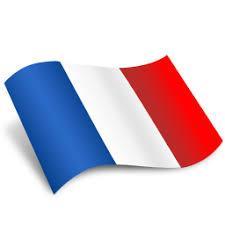French

French at Cloverlea
Intent
Cloverlea Primary School intends to use the Language Angels scheme of work and resources to ensure that we offer a relevant and broad foreign languages curriculum that will inspire our pupils using a wide variety of topics and themes.
All pupils will be expected to achieve their full potential by staff encouraging high standards and expectations in their foreign language teaching - the ultimate aim being that pupils will feel willing and able to continue studying languages beyond key stage 2.
The intent is that all content will be continuously updated and reviewed annually, creating a dynamic programme of study. This will ensure that the foreign language knowledge of our pupils progresses each academic year and is extended year upon year throughout Key Stage 2 and, in so doing, will always be relevant and in line with meeting national DfE requirements.
The four key language learning skills; listening, speaking, reading and writing will be taught and all necessary grammar will be covered in an age-appropriate way across the primary phase. This will enable pupils to use and apply their learning in a variety of contexts, laying down solid foundations for future language learning.
Teaching will plan opportunities to help pupils recall and build on previous knowledge throughout their primary school language learning journey. The intent is that all pupils will develop an interest and curiosity about foreign languages, finding them enjoyable. Learning a second language will also offer pupils the opportunity to develop an understanding of other cultures and the world around them.
Implementation
All KS2 classes will have access to a French curriculum using the Language Angels scheme of work and resources. This will progressively develop pupil skills in foreign languages through regularly taught and well-planned lessons in Key Stage 2. This will be taught by a specialist foreign language assistant and class teachers.
Children will progressively acquire, use and apply a growing bank of vocabulary, language skills and grammatical knowledge organised around age-appropriate topics and themes, which will develop building blocks of language into more complex, fluent language. All teaching staff will know where every child is at any point in their foreign language learning journey.
Early Language units are entry level units and are most appropriate for KS1 and Year 3 pupils or pupils with little or no previous foreign language learning. Intermediate units increase the level of challenge by increasing the amount and complexity (including foreign language grammar concepts) of the foreign language presented to pupils. Intermediate units are suitable for Year 4-5 pupils or pupils with embedded basic knowledge of the foreign language. Progressive units are the most challenging units and are suitable for Year 6 pupils or pupils with a good understanding of the basics of the language they are learning.
Children will be taught how to listen and read longer pieces of text gradually in the foreign language and they will have ample opportunities to speak, listen to, read and write French with and without scaffolds, frames and varying levels of support.
The planning of which units to teach each year group will be reviewed in detail annually. Lessons offering appropriate levels of challenge and stretch will be taught at all times to ensure pupils learn effectively, continuously building their knowledge of and enthusiasm for French.
Children will build on previous knowledge gradually as their Frenh lessons continue to recycle, revise and consolidate previously learnt language, whilst building on all four language skills: listening, speaking, reading and writing. Knowledge and awareness of required and appropriate grammar concepts will be taught throughout all units at all levels of challenge. Teachers use the Knowledge Organiser for each unit to ensure all children are progressing their foreign language learning skills and are taught the appropriate grammar at the right time in their foreign language learning journey.
The school has a unit planner in place which will serve as an overall ‘teaching map’ outlining for all teachers within the school what each class in each year group will be taught and when it will be taught. Each year group will have an overview of units to be taught during the academic year to ensure substantial progress and learning is achieved. Each Language Angels teaching unit is divided into six fully planned lessons.
• Each unit and lesson will have clearly defined objectives and aims.
• Each lesson will incorporate interactive whiteboard materials to include ample speaking and listening tasks within a lesson.
• Units will incorporate written activities that will be offered with three potential levels of stretch and differentiation.
• Reading and writing activities will be offered in all units.
• Every unit will include a grammar concept which will increase in complexity as pupils move from Early Language Units, through Intermediate Units and into Progressive Units in future years.
• Extended writing activities are beginning to be developed in Years 5 and 6 to ensure that pupils are recalling previously learnt language and, by reusing it, will be able to recall it and use it with greater ease and accuracy.
Units are progressive within themselves, as subsequent lessons within a unit build on the language and knowledge taught in previous lessons. As pupils progress though the lessons in a unit they will build their knowledge and develop the complexity of the language they use. Pupil learning and progression will be assessed lesson by lesson through formative assessment. Teachers will aim to assess each language skill (speaking, listening, reading and writing) across each unit.
Impact
As well as each subsequent lesson within a unit being progressive, each unit increases in level of challenge, stretch and linguistic and grammatical complexity as pupils move from Early Learning Units through Intermediate Units and, in future years, into the most challenging Progressive Units. Units in each subsequent level of the teaching type categories require more knowledge and application of skills than the previous teaching type. Activities contain progressively more text (both in English and French) and lessons will have more content as the children become more confident with the foreign language they are learning.
Early Learning Units will start at basic noun and article level and will teach pupils how to formulate short phrases. By the time pupils reach Progressive units, they will be exposed to longer texts and will be encouraged to formulate their own, more personalised responses based on a much wider bank of vocabulary, linguistic structures and grammatical knowledge. They will be able to create longer pieces of spoken and written language and are encouraged to use a variety of conjunctions, adverbs, adjectives, opinions and justifications.
Pupils will continuously build on their previous knowledge as they progress in their French learning journey through the primary phase. Previous language will be recycled, revised, recalled and consolidated whenever possible and appropriate.
Teachers will have a clear overview of what they are working towards and if they are meeting these criteria. They will use the long-term planning documents provided in the form of the KS2 MFL Unit Planners to ensure the correct units are being taught to the correct classes at each stage of the year. Planning is also provided in the form of Knowledge Organisers for each unit (covering the key learning for each unit). In addition, the Language Angels scheme provides individual lesson plans and teacher support notes laying out the learning aims and intentions of each individual lesson within a unit. These planning documents ensure that teachers know what to teach and how to teach it in each lesson, across whole units and across each term.
Pupils will be aware of their own learning as they will know and will be able to articulate if they have or have not met learning objectives and steps to success during each unit.
Children are expected to make good or better than good progress in their French learning. The opportunity to assess pupil learning and progression in the key language skills (speaking, listening, reading and writing) and against the MFL National Curriculum objectives is carried out formatively throughout each unit to arrive at an end of year summary for each child.

